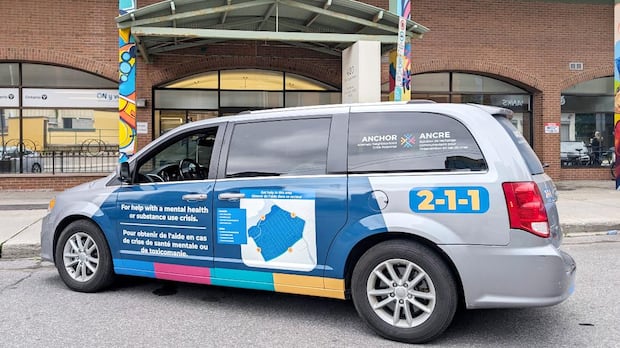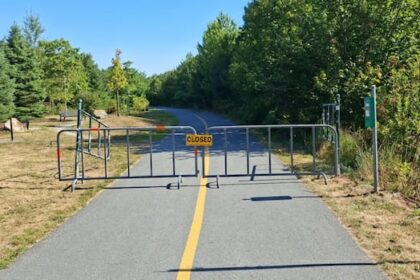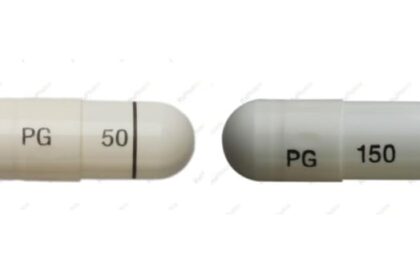OttawaLaunched in August 2024, the Alternative Neighbourhood Crisis Response (ANCHOR) team responded to 4,464 calls in its first year, according to numbers in a new city report. The pilot program aims to provide a community-led response for people dealing with mental health and substance use crises, without involving police.Vast majority of calls to ANCHOR did not require police interventionLiam Baker · CBC News · Posted: Nov 16, 2025 4:00 AM EST | Last Updated: 2 hours agoListen to this articleEstimated 4 minutesThe audio version of this article is generated by text-to-speech, a technology based on artificial intelligence.Over the past year, ANCHOR has responded to 4,464 calls, according to a recent update on the program provided by city staff. (ANCHOR)A pilot program that lets Centretown residents reach out to a community-led response team rather than police for mental health and substance abuse crises handled more than 4,000 calls in its first year, according to new numbers from the city.Ottawa’s Alternative Neighbourhood Crisis Response (ANCHOR) team launched in August 2024 and responded to 4,464 calls over the ensuing 12 months, according to a report going to the city’s community services committee later this month.Conceived in the wake of Abdirahaman Abdi’s death after a violent altercation with police in 2016, the program allows Centretown residents to call 211 to speak with an ANCHOR dispatcher in cases pertaining to mental health.The dispatcher then diverts the calls to crisis workers, who respond to situations in teams of two. “We know that some members of our community are nervous or anxious when around police officers,” said Robert Dekker, president of the Centretown Community Association. In its first year of existence, the 24/7 program was based in the Centretown area, with boundaries along the Ottawa River, the Rideau Canal, Highway 417 and Preston Street. According to the update released Friday evening, the program was able to respond to 92 per cent of calls without the need for police intervention. The average length of a call with an ANCHOR dispatcher lasted four minutes and 42 seconds, while the median response time for crisis workers was 11 minutes.Has freed up police resourcesThe concept for ANCHOR was conceived by the Ottawa Guiding Council for Mental Health and Addictions, which itself was initiated by the Ottawa Police Service (OPS) in 2021. It’s been key in freeing up resources so that police can deal with other priorities, said Somerset Coun. Ariel Troster.“You might see someone who obviously has a mental health issue, who might be talking to themselves really loudly or yelling. You might see someone who isn’t quite overdosing, but looks like they’re nodding off and they’re not entirely there or might be confused or disoriented,” said Troster.”Those are all great reasons to call ANCHOR.”Somerset Coun. Ariel Troster says the ANCHOR team has been successful in freeing up police resources, allowing officers to respond to other public safety priorities. (Jean Delisle/CBC)However, the program is not without limitations, as the crisis line is only available to people over the age of 16. It’s also not for cases involving urgent situations, medical emergencies or suspected criminal activity.Some advocates for people in police-involved deaths have criticized these exclusions as too limiting.However, Troster highlights that the ANCHOR team has been able to intervene in some conflict situations, making a difference in the quality of life for everyone living in the neighbourhood.Could do more, says BIABusinesses in the area have expressed hope that ANCHOR will help address the problem with public drug usage, which they say can make customers wary. There are still some kinks in the program that need to be worked out, however, said Sabrina Lemay, executive director of the Centretown BIA.“My biggest speaking point today is the things that ANCHOR doesn’t cover, which is still the public drug use, the visibly unhoused individuals, [their] needs, other drugs,” Lemay said. “In terms of it being the right direction, our businesses are happy with it. But it doesn’t necessarily solve the challenges we see.”While the number of calls Centretown businesses have made to police over the past year has dropped, Lemay said she’d still like to see the program grow — something that could include the cleaning up of drug paraphernalia.In the program’s second year, ANCHOR is expected to expand its boundaries southward to Carling Avenue and westward to Island Park Drive. The city’s update also said a publicly available dashboard highlighting ANCHOR’s performance should be released in the coming months.ABOUT THE AUTHORLiam Baker is an associate producer and reporter for CBC Ottawa. He also reports and produces stories on Inuit Nunangat for CBC Iqaluit. Previously, he’s reported for CBC Yukon, CBC Thunder Bay, CBC Toronto’s Enterprise unit. You can reach him at liam.baker@cbc.caWith files from Anchal Sharma
Thursday, 5 Mar 2026
Canada – The Illusion
Search
Have an existing account?
Sign In
© 2022 Foxiz News Network. Ruby Design Company. All Rights Reserved.
You May also Like
- More News:
- history
- Standing Bear Network
- John Gonzalez
- ᐊᔭᐦᑊ ayahp — It happened
- Creation
- Beneath the Water
- Olympic gold medal
- Jim Thorpe
- type O blood
- the bringer of life
- Raven
- Wás’agi
- NoiseCat
- 'Sugarcane'
- The rivers still sing
- ᑲᓂᐸᐏᐟ ᒪᐢᑿ
- ᐅᑳᐤ okâw — We remember
- ᐊᓂᓈᐯᐃᐧᐣ aninâpêwin — Truth
- This is what it means to be human.
- Nokoma











